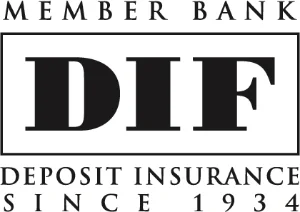A few weeks ago, there was a radio commercial for some sort of money-making opportunity. I don’t remember the company or what they were selling. I do remember very clearly hearing the commercial say, “You can’t get rich by saving.”
What? Huh? The simple fact is that even if you win a monster lottery or you’re the founder of the next Amazon, it is possible to outspend any amount of money if you really work at it.
To go 180 degrees in the other direction, it’s probably more right to say that since you can’t “get rich” by spending, you can only get rich by saving.
First, a couple of definitions. Let’s start with “rich.”
What is rich … really? That radio commercial and others like it don’t come quite out and say it but they are quick to imply that unless you’re well on your way to being a billionaire, you’re not rich.
That’s nonsense. For one thing, it takes extraordinary luck, perseverance and stewardship to become and remain a multi-multi-millionaire – let alone a billionaire. Is someone who has $500 million or $50 million or $5 million “not rich”? Hardly!
Most Americans define “rich” as having “financial freedom” or being “financially comfortable.” And it turns out that with a reasonable amount of effort over 30 or 40 years, most people do achieve that goal. Sure, their “target number” destinations vary. But the vast majority make it.
If your goal is to become rich, then your own personal definition of “savings” should be “hard dollars in your name in a bank/investment account or other historically-dependable asset like real estate in a popular market.” Obviously the more “saving streams” you can develop, the better but you’ll go a long way just by doing these four things …
1- Socking away hard dollars in a tax-deferred Individual Retirement Account and/or a 401(k) should be your top priority. Max out these and any other available tax-favored retirement accounts every year and be sure to qualify for any employer match on a 401(k). That match is free money growing with your contributions tax-deferred over decades. It’s immensely powerful.
2 – Then you need to live (at least slightly) beneath your means. Technology makes this so easy. Arrange a “Pay Yourself First” sweep and get money into a savings account on a regular basis before you ever see it. When you get a raise, increase your sweep. Tuck a large part of any windfall away into savings.
It will add up and, if you’re like most savers, it will surprise you how quickly. Consistency is the key and the more painless/automatic you can make it, the better.
3 – Many homeowners regard paying their mortgage as a kind of “forced” savings. When it comes to saving, whatever works is good!
4 – Some savers spend a lot of time worrying about getting the highest return on every dollar. But higher returns invariably involve higher risk. It’s better to keep your savings in diversified, pothole-avoiding investments that are a good combination of safety and return for you personally.
Cutting back on expensive habits that erode your savings or lead to unproductive debt may be even more important than getting the highest return. Because your ultimate goal should be to be debt-free with enough hard-dollar assets in your name that even the safest investments give you a nice annual income for life.
You can achieve financial freedom. You can be financially comfortable. There’s no secret and how to do it is not a mystery. As Stanley & Danko showed in their classic book, The Millionaire Next Door, it happens all the time. It usually takes years. It doesn’t appear to be exciting. But you can get “rich” by “saving.”
Nick Maffeo is the President & CEO of Canton Co-operative Bank in Canton. “Smart About Money” is a regular column he writes for the Canton Citizen. Have a financial question you’d like to ask? Email to info@cantoncoopbank.com.


